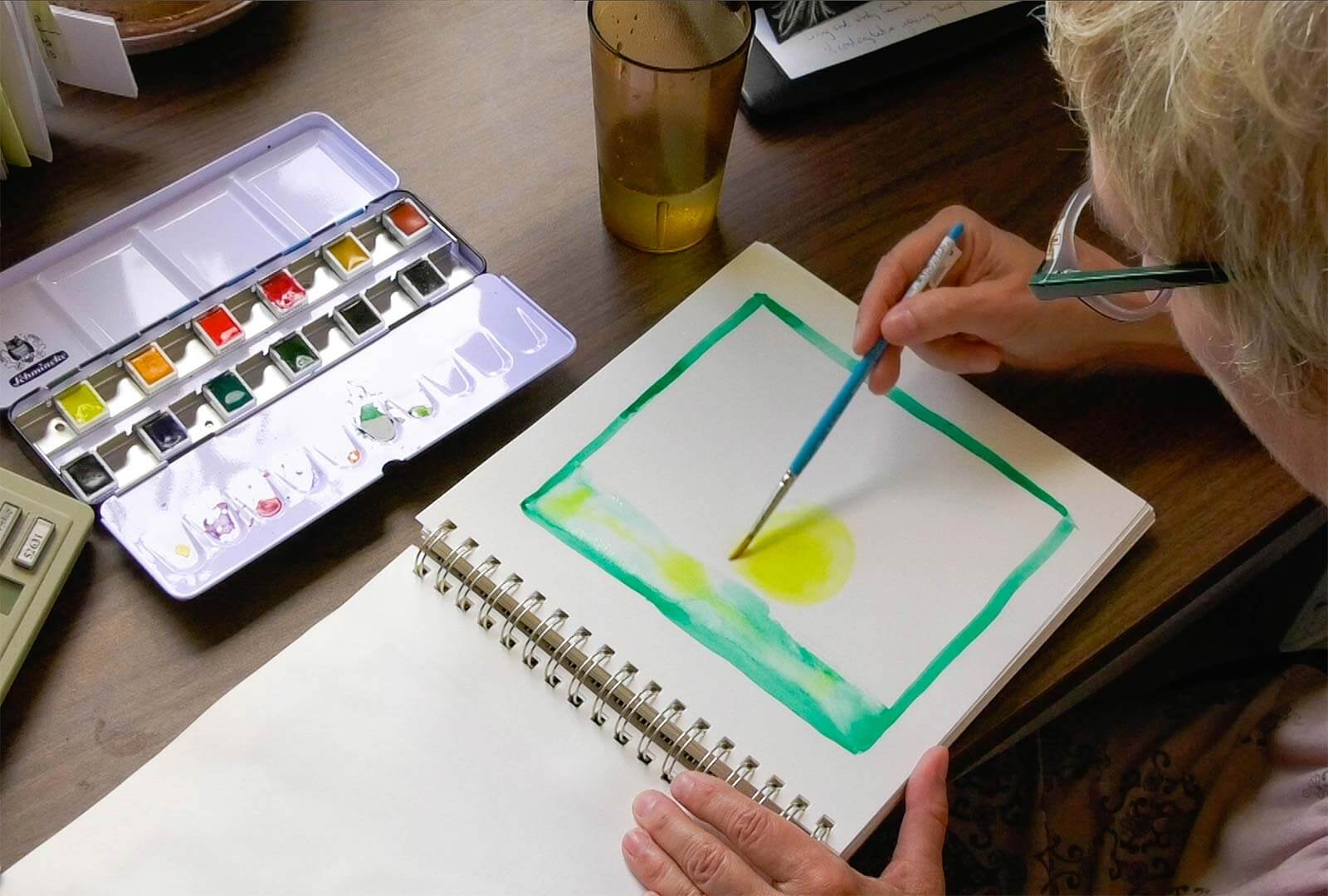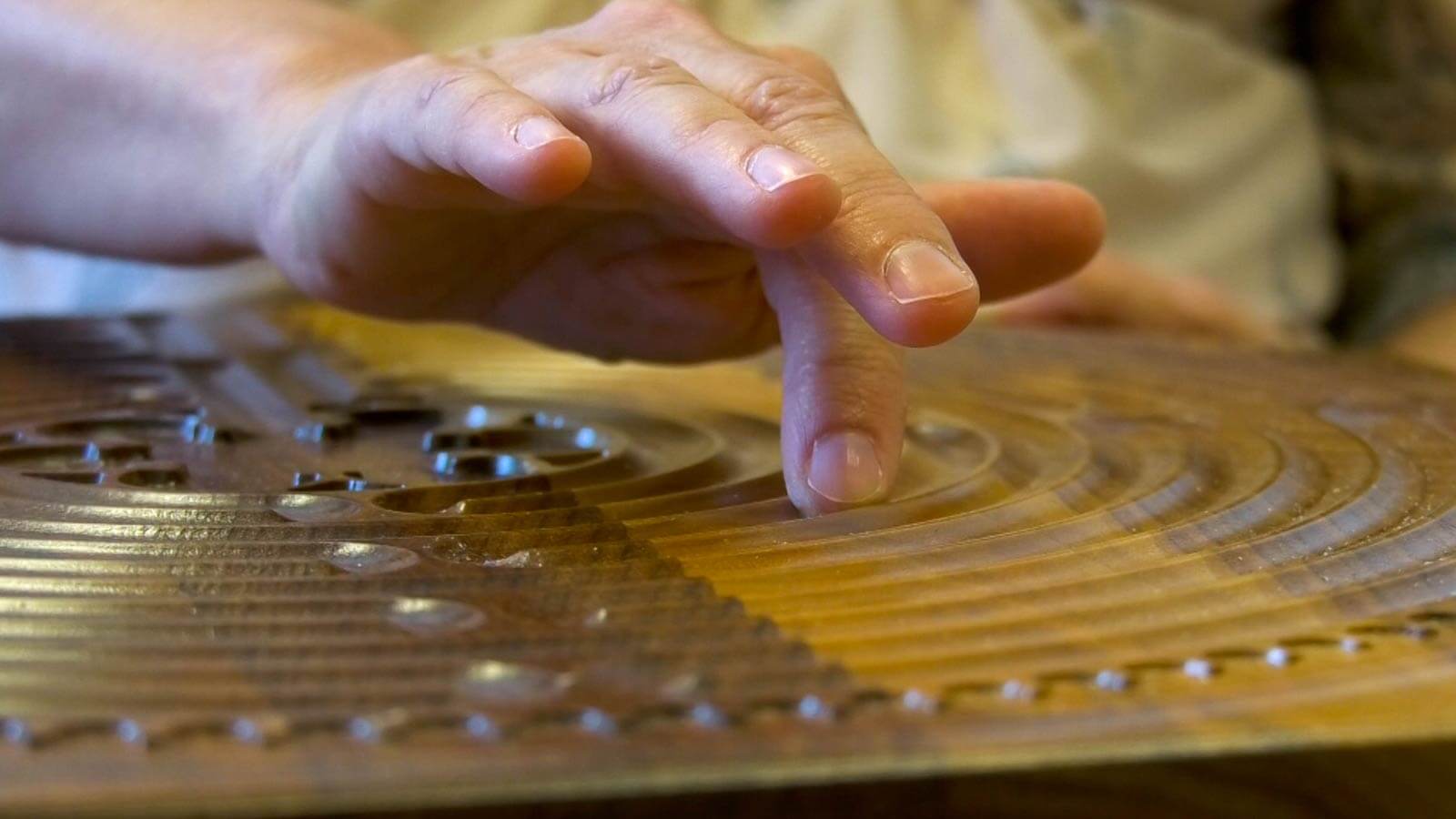Using mindfulness to deal with difficult emotions

March 2, 2020
For many, it’s tempting to avoid or suppress negative emotions in an effort to lessen their impact. But Deborah Kirkpatrick takes the opposite approach, connecting with difficult emotions and being mindful of them to better understand their role in her life and how to cope with them.
“I practice mindfulness every day because I am delighted in the discovery it brings me. Its life-giving,” says Deborah.
Deborah returned to practicing deep mindfulness after taking time away from her work as a chaplain at the Misericordia Community Hospital. She realized she needed to reconnect with herself and turned to mindfulness as a way to better understand herself and her emotions.
“Looking back, I lost track of what was going on inside of me during years of my work and in my own family situations,” Deborah explains.

In the hustle of everyday life, we often forget to pause and pay attention to the different emotions we feel. Mindfulness can help us understand those emotions, why we’re feeling them and how to deal with them. Not to be confused with positive thinking, mindfulness tells us to notice our emotions non-judgmentally — whether they are good or bad — to understand why we are feeling a certain way and to accept it.
Sandy Ayre, an occupational therapist at the Grey Nuns Community Hospital, is a passionate enthusiast of mindfulness practice. Sandy says our society is so focused on doing things that make us feel good that we bury difficult emotions that are an important part of our lives.
“Difficult emotions are compatible with mindfulness. Recognize that suffering is part of life and that there is liberation once you turn towards it and accept it,” Sandy explains. “It’s the practice of being aware without being swept away.”
Mindfulness highlights that we should meet each moment exactly as it is rather than try and spin it towards a positive light. This ensures that we are present with things as they are rather than trying to manipulate them to be something different.
Although mindfulness makes it easier to understand difficult emotions, that doesn’t mean it is any easier to practice when you’re going through tough times, says Sandy. But it’s those tough times that make staying resilient through mindfulness worth it. The process helps us make sense of our emotions, put them in context and spark emotional growth as a result.
“The emotion isn’t the enemy. It's part of us. Mindfulness joins the emotion and asks what it needs. Mindfulness is you picking up your anger, embracing it and taking care of it,” Sandy explains.
Deborah understands the impact of setting aside or misidentifying your emotions.
“If I don’t stay aware of what’s going on inside of me, then it’s still happening anyway, but I am not connected to it, so I can’t respond to it in a way that’s healthy or healing. Then it will find its own way of manifesting itself, and it can do damage,” she says.
Both Deborah and Sandy say that although it takes time to learn the practice of mindfulness, it has many benefits, such as increased self-compassion, self-awareness and resilience and less tension when faced with the ups and downs of life.
There are many ways to practice mindfulness. Some examples include:
- Meditation
- Mindful walking
- Expressive arts
- Mindful eating
- Journaling
- Mindful breathing
- Mindfulness of the body (e.g., yoga, hand labyrinth and dance)

Learning this practice may seem daunting at first, but Sandy and Deborah agree that it is worth the effort.
“Mindfulness takes the stance that everything just is. It's not good or bad. It just is,” says Sandy.